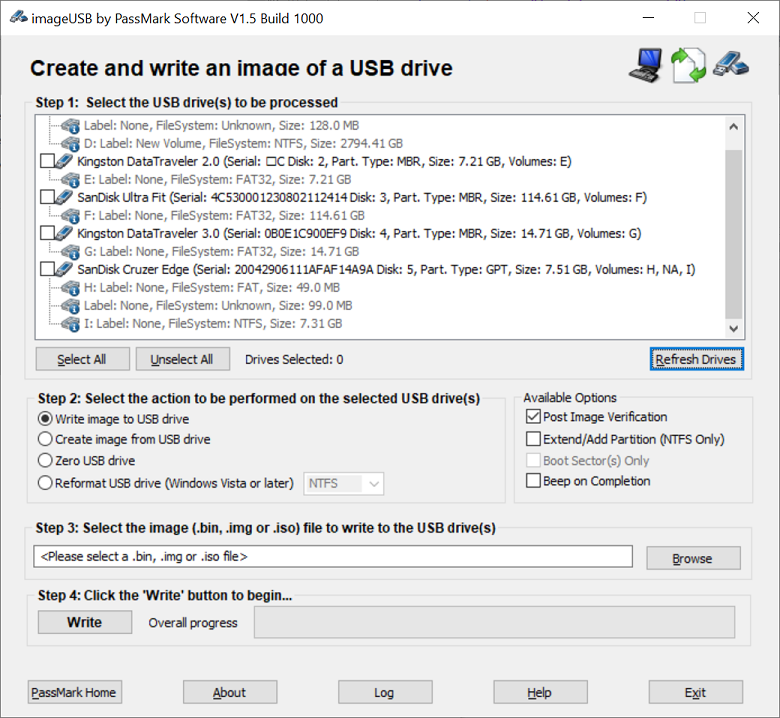
- USB MASS STORAGE CONTROLLER DRIVER FOR WINDOWS 8.1 DOWNLOAD INSTALL
- USB MASS STORAGE CONTROLLER DRIVER FOR WINDOWS 8.1 DOWNLOAD DRIVERS
- USB MASS STORAGE CONTROLLER DRIVER FOR WINDOWS 8.1 DOWNLOAD UPDATE
- USB MASS STORAGE CONTROLLER DRIVER FOR WINDOWS 8.1 DOWNLOAD FOR WINDOWS 10
- USB MASS STORAGE CONTROLLER DRIVER FOR WINDOWS 8.1 DOWNLOAD PC
Below are the steps to execute this method:
USB MASS STORAGE CONTROLLER DRIVER FOR WINDOWS 8.1 DOWNLOAD UPDATE
Method 2: Update USB Mass Storage Driver in Device ManagerĪnother way to perform USB mass storage device driver download Windows 10 is using Windows in-built utility called Device Manager. Once you have installed the genuine drivers, the USB mass storage device not working properly won’t bother you anymore.Īlso Read: Microsoft USB Driver Updates Completely Free For Windows 10, 8, 7
USB MASS STORAGE CONTROLLER DRIVER FOR WINDOWS 8.1 DOWNLOAD INSTALL
Then, download the most compatible driver file and install it manually.
USB MASS STORAGE CONTROLLER DRIVER FOR WINDOWS 8.1 DOWNLOAD PC
For this method, you must know the exact PC model and Windows operating system.
USB MASS STORAGE CONTROLLER DRIVER FOR WINDOWS 8.1 DOWNLOAD FOR WINDOWS 10
If you acquired a top-notch brand PC like HP, Dell, ASUS, and more, then you can perform a USB mass storage device driver for Windows 10 free download by going to the official website of the PC manufacturer. Check out the methods below! Method 1: Install Manually USB Mass Storage Driver from PC’s Official Manufacturer Hence, download and update USB mass storage driver for Windows 10 to avoid problems like Windows 10 not detecting your USB device.
USB MASS STORAGE CONTROLLER DRIVER FOR WINDOWS 8.1 DOWNLOAD DRIVERS
This could occur when the associated drivers goes missing or out of date. Many times, USB storage can be stuck into issues that prevent Windows from recognizing the device. The ntddsd.h header file, which is provided in the Windows Driver Kit (WDK), declares the prototypes for the routines exposed by the SD bus library.Method 3: Automatically Download and Install USB Mass Storage using Bit Driver Updater Methods to Download, Install and Update USB Mass Storage Driver on Windows 10 For a general explanation of how the SD driver stack and libraries manage hardware interrupts, see Handling Secure Digital (SD) Hardware Interrupts. For a description of the callback routine that the bus driver uses to notify an SD device driver of hardware interrupts, see PSDBUS_CALLBACK_ROUTINE. When a hardware interrupt occurs, the SD bus library intercepts the interrupt, masks out further interrupts, and notifies the SD device driver by means of a callback routine that a hardware interrupt has occurred. Furthermore, the driver must close its interface to the SD bus driver in response to an IRP_MN_QUERY_REMOVE_DEVICE request. However, when an SD device driver receives an IRP_MN_STOP_DEVICE request, it must stop all I/O operations. Consequently, SD device drivers are not required to map any hardware resources when handling an IRP_MN_START_DEVICE request. SD device drivers must handle standard PnP and power IRPs, but they do not request or manage hardware resources, such as ports, memory, or interrupt vectors. SD device drivers issue commands to the host controller by calling the SD bus library routines, and then the library generates the appropriate SD commands for the host controller.

SD device drivers cannot directly access the host-controller register set, nor can they embed pass-through commands for the host controller in I/O request packets (IRPs). The following diagram depicts the SD driver stack that the system creates when it enumerates an SD controller and accompanying cards: SD drivers must link to this library when they compile. If a user inserts an SD card with a different kind of function, such as GPS or wireless LAN, Windows loads a vendor-supplied driver for the device.Īll device drivers in the SD stack, whether native or vendor-supplied, must communicate with the SD bus driver by calling routines in the static SD bus library ( sdbus.lib). If a user inserts an SD memory card, Windows loads a native SD storage class driver ( sffdisk.sys) and storage miniport driver ( sffp_sd.sys) on top of the bus driver. When the system enumerates an SD host controller, it loads a native SD bus driver ( sdbus.sys). The operating system provides support for SD host controllers that connect directly to the PCI bus. Windows manages these devices with the USB mass storage driver ( usbstor.sys) and the native storage class driver ( disk.sys), as depicted in the following diagram:įor a more complete description of the device stack that Windows creates for a memory card that connects to the USB bus, see Device Object Example for a USB Mass Storage Device. This document explains how the operating system supports the card function extensions to SD technology.Ĭard readers for many early SD storage devices were designed to connect to the USB bus. Secure Digital (SD) card technology began with portable, miniature memory cards, but with the release of the Secure Digital I/O (SDIO) specification, the Secure Digital Association (SDA) has broadened the definition of SD technology to include a large variety of card functions, such as Bluetooth devices, video cameras, Wireless LAN devices, and Global Positioning System (GPS) receivers.


 0 kommentar(er)
0 kommentar(er)
